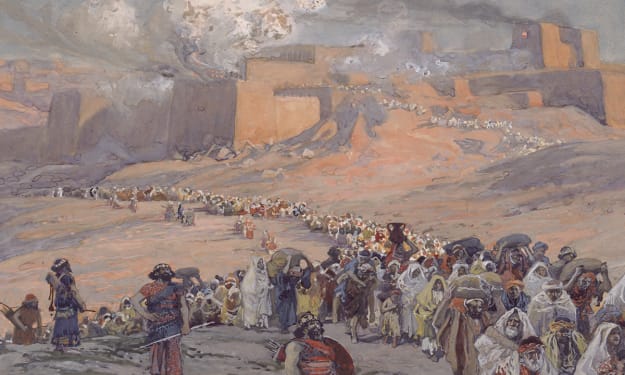Content warning
This story may contain sensitive material or discuss topics that some readers may find distressing. Reader discretion is advised. The views and opinions expressed in this story are those of the author and do not necessarily reflect the official policy or position of Vocal.
Lost in Translation
The Internet's Multilingual Wonders You Never Knew Existed

In the present interconnected world, the web has changed the manner in which we convey information, separating hindrances from reality. Yet, did you have any idea that the web isn't simply a monolingual domain overwhelmed by English? It is, as a matter of fact, an energetic multilingual wonderland, where a rich embroidery of dialects flourishes and interfaces individuals across the globe. In this article, we will set out on an excursion through the web's multilingual marvels, uncovering entrancing realities that will leave you shocked.
One of the most enthralling parts of the web's semantic variety is the sheer number of dialects addressed on the web. While English stands firm as a predominant language, different dialects have cut out their own computerized spaces. From Spanish and Mandarin to Arabic and Hindi, the web incorporates a stunning assortment of tongues, creating a worldwide orchestra of words and thoughts.
However, in addition to the significant dialects, the web is a multilingual marvel. There are incalculable less popular dialects that get comfortable with themselves being web based, challenging topographical impediments, and interfacing networks that could some way or another stay secluded. Whether it's the native dialects of the Americas, the ancestral dialects of Africa, or the imperiled dialects of Asia, the web gives a stage to semantic renewal and social protection.
The web's multilingualism isn't restricted to text based correspondence alone. Visual dialects, like emoticons and emojis, have turned into a vital part of online discussions. These generally perceived images rise above language hindrances, permitting people from different phonetic foundations to communicate feelings and convey significance in a more nuanced way.
Besides, the web has seen the introduction of a one of a kind crossover of dialects known as "netspeak" or "web shoptalk." This computerized vernacular joins components from different dialects, coming about through a steadily developing phonetic peculiarity. From truncations like "Haha" (laughing uncontrollably) to fun loving articulations like "OMG" (good gracious), web shoptalk has saturated our ordinary correspondence, obscuring the lines between various phonetic customs.
The web's multilingual miracles stretch beyond simple correspondence. They have opened up new doors for worldwide coordinated effort, social trade, and learning. Online stages work with language learning through intelligent assets, language trade discussions, and virtual homerooms. Individuals can now associate with local speakers of various dialects and submerge themselves in unfamiliar societies without leaving their homes.
The web has likewise led to another type of advanced powerhouses who champion their local dialects. These etymological pioneers make content in their first languages, sharing their way of life, customs, and information with a worldwide crowd. They act as ministers of their dialects, cultivating appreciation and understanding among web clients around the world.
Be that as it may, the web's semantic scene isn't without challenges. The predominance of specific dialects can underestimate others, restricting their perceivability and portrayal on the web. Language obstructions can thwart admittance to data and open doors, making a computerized split between the people who are familiar with generally communicating in dialects and the people who are not.
To address these difficulties, efforts are in progress to advance etymological inclusivity on the web. Interpretation devices and restriction endeavors mean to connect language holes and make computerized content more open to a different scope of clients. Also, grassroots developments pushing for semantic freedoms and safeguarding are picking up speed, accentuating the significance of phonetic variety in an advanced age.
Taking everything into account, the web's multilingual marvels are a dazzling demonstration of the force of language to associate, motivate, and change. From significant dialects to jeopardized tongues, from emoticons to netspeak, the web's phonetic variety improves our internet based encounters and cultivates a feeling of worldwide solidarity. As we explore this hugely advanced scene, let us celebrate and love the multilingual marvels of the web, embracing the lavishness of dialects that wind around our worldwide local area.
About the Creator
Enjoyed the story? Support the Creator.
Subscribe for free to receive all their stories in your feed. You could also pledge your support or give them a one-off tip, letting them know you appreciate their work.





Comments
There are no comments for this story
Be the first to respond and start the conversation.